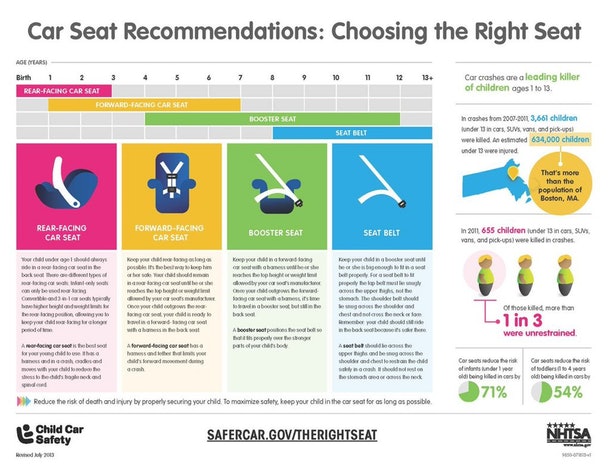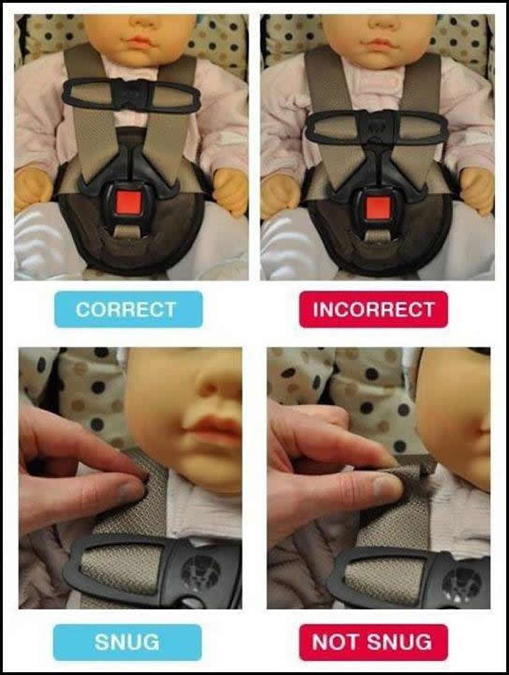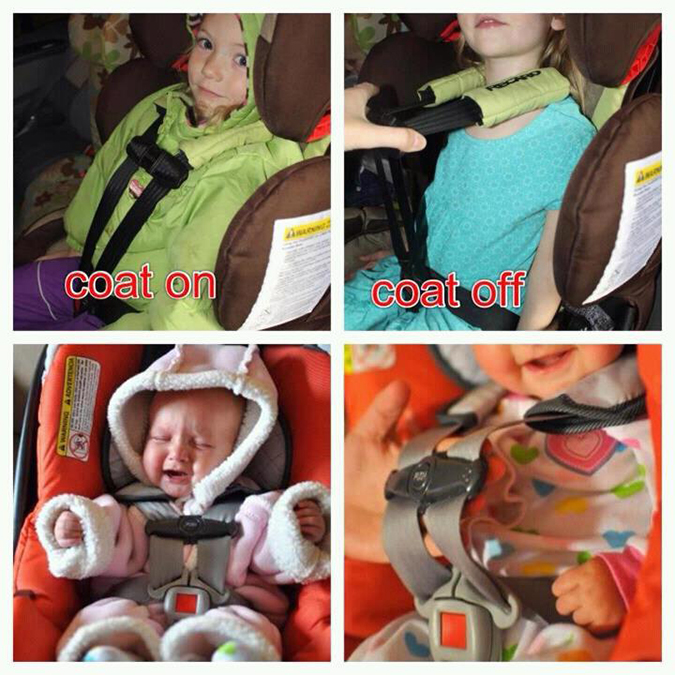We can all agree that car seats are the safest way for kids to travel,
but commonly we see car seats improperly used, which can reduce their
effectiveness if you are involved in an accident. Common mistakes include:
- Improper installation.
- Turning kids forward facing too soon and/or going to a booster too soon.
- Incorrect seat belt placement.
- Bulky coats on under safety belts.
Below is some more information (with graphics and photos) on how to avoid
these common mistakes.
Improper installation
Did you know that four out of five car seats are installed improperly?
A properly installed car seat or child restraint can help prevent a tragedy.
Campbell County Health can help you avoids this with free
car seat checks through
Safe Kids Campbell County.
If you want to make sure your child’s car seat is installed properly,
consider scheduling a FREE safety seat inspection with certified Child
Passenger Safety Technicians at CCH
Emergency Medical Services (EMS). Technicians will train parents and caregivers to install and adjust
their car seats properly. Participants are asked to bring the child, their
current car seat and the vehicle that they normally travel in for the
check. Inspections take around 30 minutes and are held on Wednesdays from
3-6 pm at the EMS Base, 502 Stocktrail Avenue in Gillette, Wyoming—appointments
are required. Replacement car seats are available for a $30 contribution.
Call (307) 688-SAFE (7233) to schedule an appointment.
Turning kids forward facing too soon and/or going to a booster too soon
Very commonly parents turn their child forward facing shortly after 1 year
of age; however, they are much safer if they stay rear facing.
Guidelines issued by the
American Academy of Pediatrics (AAP) in 2011 recommend that all infants and toddlers should ride in a
rear-facing seat until they reach the highest weight or height allowed
by their car seat manufacturer. Most convertible seats have limits that
will allow children to ride rear facing for 2 years old or more. The AAP
made the 2011 change to rear face until age 2 based on a 2007 study in
the journal
Injury Prevention. The study found that children under age two are five times safer in a
crash if they are rear facing compared to forward facing.
The AAP recommends that kids use a
booster seat until they are at least 4’9” tall (57 inches) and weigh between
80 and 100 pounds. Children seated in a booster seat in the back seat
of the car are 45% less likely to be injured in a crash than children
using a seat belt alone. According to
Wyoming Child Restraint Laws children must be in a child restraint (car seat or booster seat) until
they are 9 years old.
Check out this graphic provided by the
National Highway Traffic Administration.

Incorrect seat belt placement
Very commonly we see belts that are too loose or too far down on the abdomen,
this does not adequately restrain the child in the event of an accident.
Belts should be snug and across the upper chest. Check out his photo available at
Partners In Learning.

Bulky coats on under safety belts
Wyoming winters are brutal and we all want to keep our littles ones warm
and snuggled, but they are not safe being buckled into their seats with
the coats under the buckles. This causes the belts to be too loose and
not properly restrain the child. Coats should be off and a blanket or
coat placed over the child once they are buckled. Check out his photo
available at
Partners In Learning.

Deanna L. Lassegard, MD, is an
Emergency Physician at
Campbell County Memorial Hospital in Gillette, Wyoming. Our resident safety expert, Dr. Lassegard writes monthly
Simple Safety blogs for Campbell County Health. Check them out at
www.cchwyo.org/simplesafety.